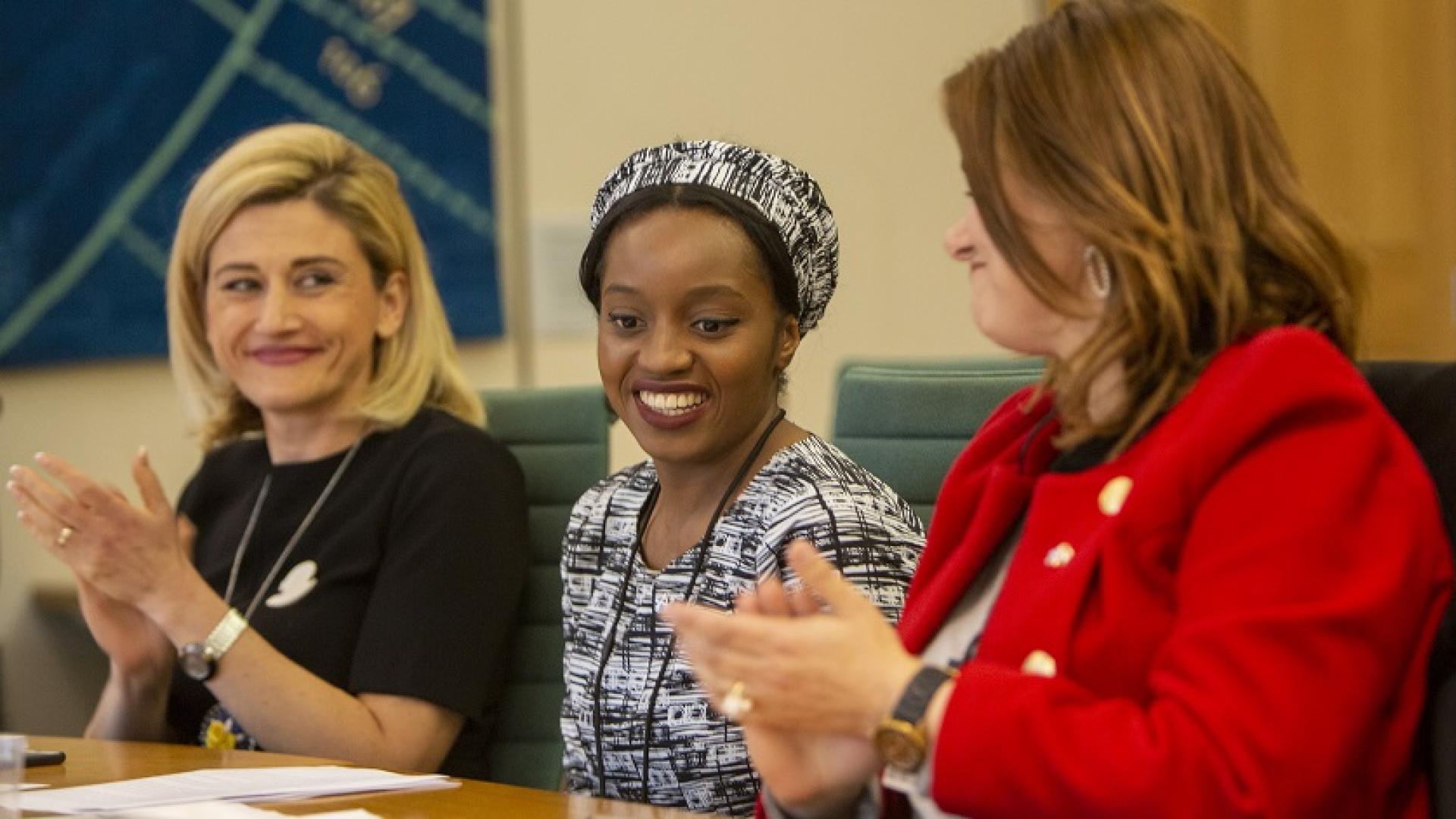UK parliamentary group calls to end violence against women in politics

Women’s political leadership improves societies around the world – raising economic productivity, reducing child and maternal mortality, and increasing opportunities for education and better health.
Despite these benefits women face multiple barriers in politics, including violence.
On 26 March, the All-Party Parliamentary Group (APPG) on Democracy in the World, a cross-party group of MPs and Peers in the UK parliament with an interest in democracy and development, explored what political parties can and should do to address violence against women in politics (VAWP).
The meeting was supported by WFD’s political party offices – Labour, Conservatives, Scottish National Party, Plaid Cymru, and Liberal Democrats – who brought together some of their political partners from around the world, including:
- Senator Maria Lourdes Landivar Tufiño from Bolivia
- Afef Daoud, Vice President of the Ettakatol National Council in Tunisia
- Mimoza Kusari-Lila MP, leader of Alternativa political party in Kosovo
- Dr Rula AlFarra MP from Jordan and chair of the regional Arab Women Parliamentarians’ Network for Equality (Ra’edat)
- Ndondwa Msaka, Project Officer Centre for Civil Society Strengthening in Malawi
The speakers provided insights into the legal frameworks, political arrangements and judicial practices used in their societies to prevent or address violence against women in politics and elections.
Two common findings emerged : 1) violence against women in politics is a common and almost normalised experience; and, 2) legislation designed to prevent, protect and prosecute VAWP is often designed well on paper, but not implemented or enforced in practice. The answer is more rigid implementation of existing laws throughout the policing, judicial and political systems.
UK representatives, including Lyn Brown MP, Helen Whately MP, Rt Hon Liz Saville Roberts MP, Baroness Hooper and member of the Welsh Assmebly, Delyth Jewell, agreed that commendable legislation is in place in many instances but, as Ms Saville Roberts noted:
“It is not being put into effect in a way that can change the culture of politics.”
Visiting political leaders and activists shared personal stories of the violence, threats and intimidation they experienced, which, in many instances, mirrored what UK political leaders are currently enduring within the highly-charged Brexit debate.
Participants discussed a variety of responses to address the role of political parties in combatting VAWP, including:
- Political parties must create working environments in which women are safe from harassment, bullying and intimidation, and in which their political participation is invited and welcomed. This includes assessing all spaces where party activities take place – from campaign offices to parliaments – as official workspaces that should be regulated under gender equality and anti-harassment legislation.
- Political parties must support cross-party partnerships as well as cross-gender alliances to work in coordination to address violence, intimidation and harassment, and ensure it is eradicated from parties’ internal practices and organisational culture.
- Compensation for survivors of violence and some form of financial penalty for perpetrators and their political parties should be explored to assess whether this would catalyse reform and change behaviour.
- Political parties must provide data on incidents of violence against women members and officials to regulatory or policing authorities, where these systems are reliable and legitimate.
Contributors to the meeting also discussed the critical role that powerful political networks can play in supporting politically-active women throughout their careers.